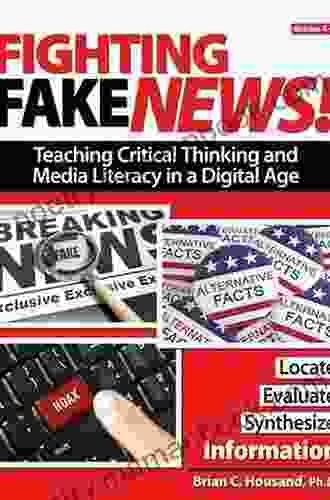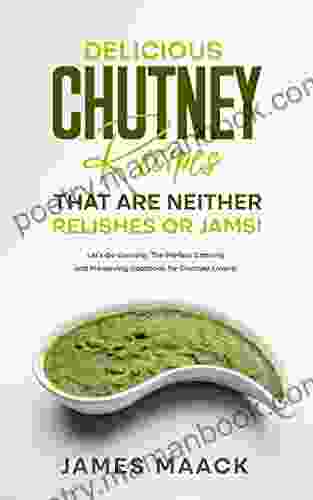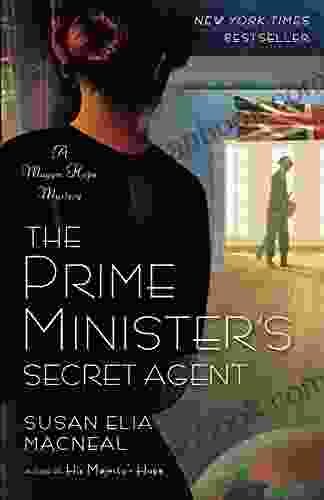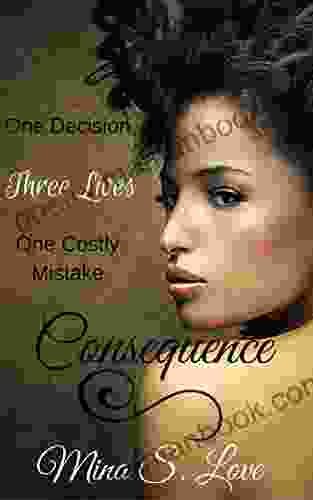Fighting Fake News: Empowering Students with Critical Thinking and Media Literacy in the Digital Age

: The Perils of Misinformation
In the labyrinthine realm of the internet, where information flows as freely as a river, the challenge of navigating misinformation has become a pressing concern. Fake news, a pervasive scourge that threatens to erode public trust and undermine critical thinking, has taken root in the digital ecosystem, posing a formidable threat to individuals and society alike.
Misinformation, often disguised as legitimate news, can spread rapidly through social media and the interconnected channels of the digital landscape. Its ability to deceive and mislead has led to its widespread dissemination, fueling divisions, spreading fear, and distorting perceptions of reality. The insidious nature of fake news has ignited an urgent need for educational interventions that equip individuals with the tools to discern truth from falsehood and navigate the complexities of the digital information landscape.
4.6 out of 5
| Language | : | English |
| File size | : | 10215 KB |
| Text-to-Speech | : | Enabled |
| Screen Reader | : | Supported |
| Enhanced typesetting | : | Enabled |
| Word Wise | : | Enabled |
| Print length | : | 153 pages |
Critical Thinking and Media Literacy: Essential Tools for the Digital Age
Combating the menace of fake news demands a multifaceted approach that emphasizes the development of critical thinking skills and media literacy competencies. Critical thinking, an essential cognitive skill, empowers individuals to analyze information objectively, evaluate evidence, and draw sound s. Media literacy, a complementary skill set, involves the ability to understand and analyze media content, recognize biases, and identify the techniques employed to persuade or manipulate audiences.
By fostering these indispensable skills in students, educators can empower them to become discerning consumers of information, capable of evaluating the credibility of news sources, detecting bias and propaganda, and making informed decisions about the content they engage with.
Teaching Critical Thinking and Media Literacy in Practice
Incorporating critical thinking and media literacy into educational curricula requires innovative pedagogical approaches that engage students actively and foster their analytical abilities. Educators can employ a range of strategies to achieve these goals, including:
- Source Evaluation: Encourage students to interrogate the credibility of news sources by examining their track record, affiliations, and biases.
- Fact-checking: Guide students in verifying claims made in news articles by consulting reputable fact-checking organizations and cross-referencing information from multiple sources.
- Bias Detection: Train students to identify different types of bias, such as confirmation bias, political bias, and corporate bias, and to assess how these biases may influence the presentation of news.
- Media Analysis: Engage students in analyzing media content, including news articles, social media posts, and advertisements, to understand the persuasive techniques employed and the intended audience.
Empowering Students with Verification Tools and Techniques
In addition to fostering critical thinking and media literacy skills, educators can equip students with practical tools and techniques to verify information independently. These tools include:
- Fact-Checking Websites: Introduce students to reputable fact-checking websites, such as Snopes, PolitiFact, and FactCheck.org, which provide reliable assessments of news claims.
- Reverse Image Search: Demonstrate how to use reverse image search tools to identify the original source of images and detect manipulated or misleading content.
- Social Media Verification: Guide students in using social media tools to verify information, such as checking the source of a post, examining the poster's profile, and cross-referencing information with other sources.
Fostering a Culture of Verification and Critical Engagement
Beyond the classroom, it is essential to cultivate a culture of verification and critical engagement that extends beyond the school environment. Educators can play a pivotal role in promoting this culture by:
- Encouraging Open Dialogue: Create opportunities for students to discuss their thoughts and perspectives on current events and media content, fostering a culture of open inquiry and critical debate.
- Collaborating with Parents: Engage parents in the effort to equip students with media literacy skills by providing them with resources and tips for supporting their children's education in this area.
- Promoting Community Involvement: Organize community events and workshops that raise awareness about fake news and empower citizens to combat misinformation effectively.
: A Path Forward to a More Informed and Critical Society
The fight against fake news is a непрекращающаяся битва, requiring sustained efforts from educators, students, parents, and the community at large. By equipping our students with critical thinking and media literacy skills, we empower them to navigate the digital information landscape with discernment and resilience.
As we continue to grapple with the challenges posed by misinformation, it is imperative that we invest in educational initiatives that foster a culture of verification and critical engagement. Only through collective action and a commitment to promoting media literacy can we build a society that is informed, discerning, and resistant to the corrosive effects of fake news.
Let us embrace the challenge to cultivate critical thinkers who are empowered to discern truth from fiction, promote informed decision-making, and safeguard the integrity of our public discourse. Together, we can create a digital landscape that is characterized by truth, transparency, and a shared commitment to seeking knowledge and understanding.
4.6 out of 5
| Language | : | English |
| File size | : | 10215 KB |
| Text-to-Speech | : | Enabled |
| Screen Reader | : | Supported |
| Enhanced typesetting | : | Enabled |
| Word Wise | : | Enabled |
| Print length | : | 153 pages |
Do you want to contribute by writing guest posts on this blog?
Please contact us and send us a resume of previous articles that you have written.
 Top Book
Top Book Novel
Novel Fiction
Fiction Nonfiction
Nonfiction Literature
Literature Paperback
Paperback Hardcover
Hardcover E-book
E-book Audiobook
Audiobook Bestseller
Bestseller Classic
Classic Mystery
Mystery Thriller
Thriller Romance
Romance Fantasy
Fantasy Science Fiction
Science Fiction Biography
Biography Memoir
Memoir Autobiography
Autobiography Poetry
Poetry Drama
Drama Historical Fiction
Historical Fiction Self-help
Self-help Young Adult
Young Adult Childrens Books
Childrens Books Graphic Novel
Graphic Novel Anthology
Anthology Series
Series Encyclopedia
Encyclopedia Reference
Reference Guidebook
Guidebook Textbook
Textbook Workbook
Workbook Journal
Journal Diary
Diary Manuscript
Manuscript Folio
Folio Pulp Fiction
Pulp Fiction Short Stories
Short Stories Fairy Tales
Fairy Tales Fables
Fables Mythology
Mythology Philosophy
Philosophy Religion
Religion Spirituality
Spirituality Essays
Essays Critique
Critique Commentary
Commentary Glossary
Glossary Bibliography
Bibliography Index
Index Table of Contents
Table of Contents Preface
Preface Introduction
Introduction Foreword
Foreword Afterword
Afterword Appendices
Appendices Annotations
Annotations Footnotes
Footnotes Epilogue
Epilogue Prologue
Prologue Gillian Flynn
Gillian Flynn Joey Diovisalvi
Joey Diovisalvi Mimi Barbour
Mimi Barbour V Totta
V Totta Wen Spencer
Wen Spencer Brett C Persson
Brett C Persson Stephen Rollnick
Stephen Rollnick Andy Stanley
Andy Stanley Brent Reilly
Brent Reilly Martha Beck
Martha Beck Yumi Hotta
Yumi Hotta Kathryn Levison
Kathryn Levison John Elray
John Elray Richard Hougham
Richard Hougham Tatenda Kangwende
Tatenda Kangwende Janet Nichols Lynch
Janet Nichols Lynch Mari Carr
Mari Carr Cindy Kirk
Cindy Kirk Everly Frost
Everly Frost Ananya Roy
Ananya Roy
Light bulbAdvertise smarter! Our strategic ad space ensures maximum exposure. Reserve your spot today!
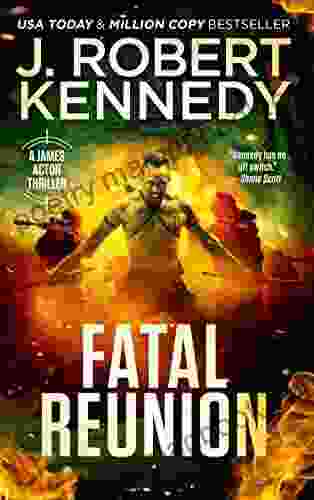
 Damon HayesFatal Reunion: A Gripping James Acton Thriller That Will Keep You on the Edge...
Damon HayesFatal Reunion: A Gripping James Acton Thriller That Will Keep You on the Edge...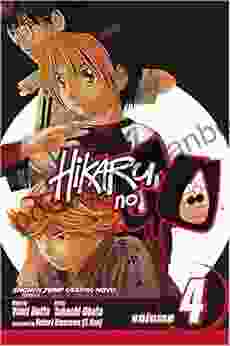
 Dakota PowellHikaru No Go Vol 12: Divine Illusions: An Enthralling Journey into the World...
Dakota PowellHikaru No Go Vol 12: Divine Illusions: An Enthralling Journey into the World... Albert ReedFollow ·5k
Albert ReedFollow ·5k E.E. CummingsFollow ·8.5k
E.E. CummingsFollow ·8.5k Austin FordFollow ·13.8k
Austin FordFollow ·13.8k Chandler WardFollow ·15.9k
Chandler WardFollow ·15.9k Samuel WardFollow ·2.1k
Samuel WardFollow ·2.1k Ed CooperFollow ·6.2k
Ed CooperFollow ·6.2k Raymond ParkerFollow ·15.9k
Raymond ParkerFollow ·15.9k Dave SimmonsFollow ·4.5k
Dave SimmonsFollow ·4.5k
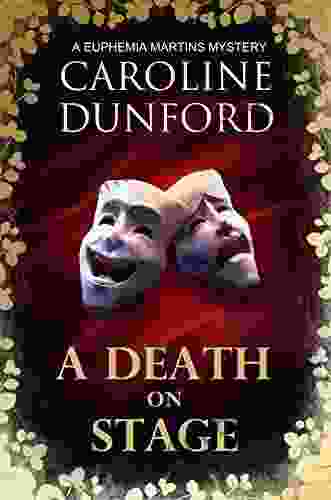
 Patrick Hayes
Patrick HayesDeath on Stage: Euphemia Martins Mystery 16
Synopsis In the...
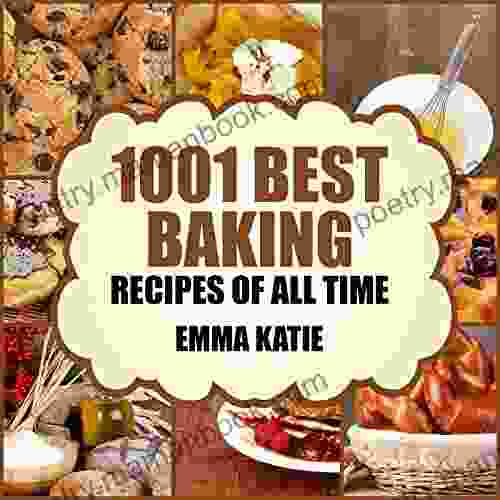
 Benji Powell
Benji Powell1001 Best Baking Recipes Of All Time
Baking is a fun and...
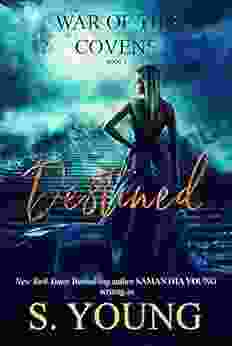
 Terry Bell
Terry BellDestined War of the Covens: A Supernatural Saga of Power,...
Welcome to the...

 Mark Twain
Mark TwainBitcoin For Mere Mortals: A Comprehensive Guide for...
Bitcoin is a...
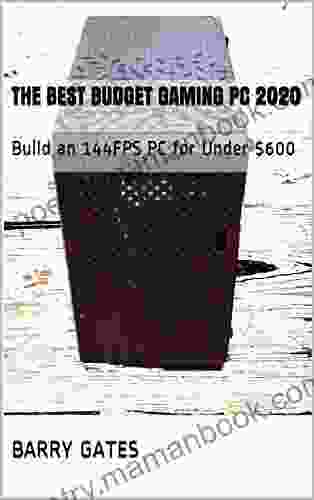
 Dennis Hayes
Dennis HayesThe Best Budget Gaming PC 2024: Build the Ultimate Gaming...
Are you looking to build the best budget...
4.6 out of 5
| Language | : | English |
| File size | : | 10215 KB |
| Text-to-Speech | : | Enabled |
| Screen Reader | : | Supported |
| Enhanced typesetting | : | Enabled |
| Word Wise | : | Enabled |
| Print length | : | 153 pages |


